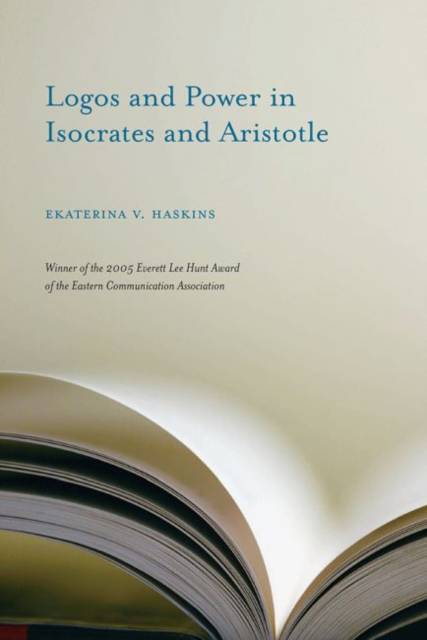
- Retrait gratuit dans votre magasin Club
- 7.000.000 titres dans notre catalogue
- Payer en toute sécurité
- Toujours un magasin près de chez vous
- Retrait gratuit dans votre magasin Club
- 7.000.0000 titres dans notre catalogue
- Payer en toute sécurité
- Toujours un magasin près de chez vous
Description
A provocative reconsideration of two competing classical approaches to discourse, politics, and education
As one of the founding philosophers of the Western tradition, Aristotle raised many of the issues that still animate scholarly debates in the humanities. By contrast Isocrates, despite his considerable reputation in antiquity and the Renaissance as an educator, became a marginal figure in the intellectual history of the West. Logos and Power in Isocrates and Aristotle presents Isocrates' vision of discourse as a worthy rival, rather than a mere precursor, of Aristotle's Rhetoric. Casting Isocrates and Aristotle as opponents in a debate over the character, resources, and ends of rhetorical education, Ekaterina V. Haskins argues that much of what Aristotle had to say about the status of rhetoric and the role of discourse in the life of a Greek city-state may have been an implicit reaction to Isocrates. Haskins finds that Isocrates offers a more comprehensive and culturally attuned theory of civic discourse and education than does Aristotle, whose intellectual project disengages moral philosophy from the contingencies of public culture and introduces rhetoric merely as an art serviceable to a philosophically trained statesman. Haskins terms Isocrates' approach to discourse "constitutive" and Aristotle's "instrumental" and shows how the former is more congenial to the goals of contemporary rhetorical theory and pedagogy.
Spécifications
Parties prenantes
- Auteur(s) :
- Editeur:
Contenu
- Nombre de pages :
- 168
- Langue:
- Anglais
- Collection :
Caractéristiques
- EAN:
- 9781570038730
- Date de parution :
- 01-08-09
- Format:
- Livre broché
- Format numérique:
- Trade paperback (VS)
- Dimensions :
- 152 mm x 229 mm
- Poids :
- 285 g

Les avis
Nous publions uniquement les avis qui respectent les conditions requises. Consultez nos conditions pour les avis.






